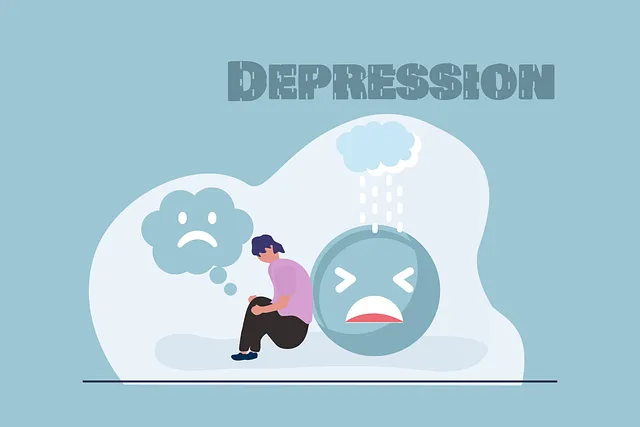The Kaiser Permanente mental health center in Longmont prioritizes coping skills development as a key strategy for managing life's challenges and promoting holistic mental wellness. They offer evidence-based practices, cultural sensitivity, and accessible resources like the Mental Wellness Podcast Series and Trauma Support Services. Through initiatives like Mental Wellness Journaling Exercise Guidance, the center equips individuals with practical mood management tools to enhance self-awareness, resilience, and overall well-being.
Coping skills are essential tools for navigating life’s challenges and maintaining mental well-being. This article explores the significance of these skills, highlighting the role of Kaiser Permanente Mental Health Center Longmont in their development. We’ll delve into effective strategies and practical tips to integrate coping skills into daily routines, fostering resilience and enhancing overall mental health. Discover how these techniques can revolutionize your approach to stress management, drawing from evidence-based practices offered by leading centers like Kaiser Permanente.
- Understanding Coping Skills and Their Significance
- The Role of Kaiser Permanente Mental Health Center Longmont
- Strategies for Effective Coping Skills Development
- Practical Tips for Integrating Coping Skills into Daily Life
Understanding Coping Skills and Their Significance

Coping skills are the strategies individuals use to navigate life’s challenges and maintain their mental wellness. They play a pivotal role in managing stress, overcoming adversity, and fostering resilience. At the Kaiser Permanente mental health center Longmont, we recognize that developing effective coping skills is essential for overall well-being.
Through our Community Outreach Program Implementation, we strive to empower individuals with practical tools and resources to enhance their Coping Skills Development. By addressing the unique needs of our community, we aim to promote Mental Wellness and support a more resilient and supportive environment for all.
The Role of Kaiser Permanente Mental Health Center Longmont

The Kaiser Permanente Mental Health Center Longmont plays a pivotal role in promoting mental wellness and providing essential coping skills development resources to the community. This center offers a comprehensive range of services designed to support individuals dealing with various mental health challenges, from anxiety and depression to trauma and stress-related disorders. Their approach is holistic, focusing not just on treatment but also on empowering patients with practical tools for mood management.
One notable initiative is the Mental Wellness Podcast Series Production, which leverages modern technology to reach a wider audience. This series provides valuable insights into mental health topics, featuring expert interviews and personal narratives that encourage open dialogue. Additionally, the center offers Trauma Support Services tailored to help individuals process and overcome traumatic experiences. Through these services, Kaiser Permanente Longmont ensures that every individual, regardless of their background or challenges, has access to effective coping strategies for enhancing their overall mental wellness.
Strategies for Effective Coping Skills Development

Developing effective coping skills is a powerful tool for navigating life’s challenges, and the Kaiser Permanente mental health center in Longmont offers valuable resources to support this journey. At this renowned facility, professionals emphasize a holistic approach to mental wellness, recognizing that each individual has unique needs and preferences when it comes to coping mechanisms. One evidence-based strategy is Mental Wellness Journaling Exercise Guidance, which encourages individuals to reflect on their thoughts, emotions, and experiences in a structured yet personal way. This practice fosters self-awareness and helps identify patterns of behavior or triggers for distress.
Additionally, the center promotes Cultural Sensitivity in Mental Healthcare Practice, understanding that cultural backgrounds significantly influence how one perceives and copes with mental health issues. By incorporating this sensitivity into therapy sessions, the Longmont location ensures that coping strategies are tailored to an individual’s cultural context, enhancing their effectiveness. The process of Emotional Healing Processes is thus not only personalized but also respectful and culturally competent, ultimately leading to more positive outcomes in managing stress and adversity.
Practical Tips for Integrating Coping Skills into Daily Life

Developing coping skills is a powerful tool for maintaining mental health and well-being. At the Kaiser Permanente mental health center in Longmont, professionals emphasize the importance of integrating these strategies into daily life to navigate stress and challenges effectively. One practical approach is to establish a consistent self-care routine; dedicating time each day for activities that promote relaxation, such as exercise, reading, or engaging in hobbies, can significantly improve resilience.
In moments of heightened distress, having a toolkit of coping mechanisms ready is invaluable. This might include practicing mindfulness meditation to center oneself, deep breathing exercises to calm the mind and body, or journaling to process emotions. The Crisis Intervention Guidance offered by the Kaiser Permanente mental health center also encourages individuals to identify personal triggers and develop tailored strategies for managing them. By incorporating these practices into daily life, one can foster better mental health and enhance overall resilience.
In conclusion, developing effective coping skills is a powerful tool for navigating life’s challenges. The article has explored various strategies, highlighting the essential role of understanding and utilizing available resources like the Kaiser Permanente Mental Health Center in Longmont to foster positive mental well-being. By integrating practical tips into daily routines, individuals can enhance their resilience and overall happiness. Remember that coping skills are a continuous process; with dedication and support, one can lead a more balanced and fulfilling life.






